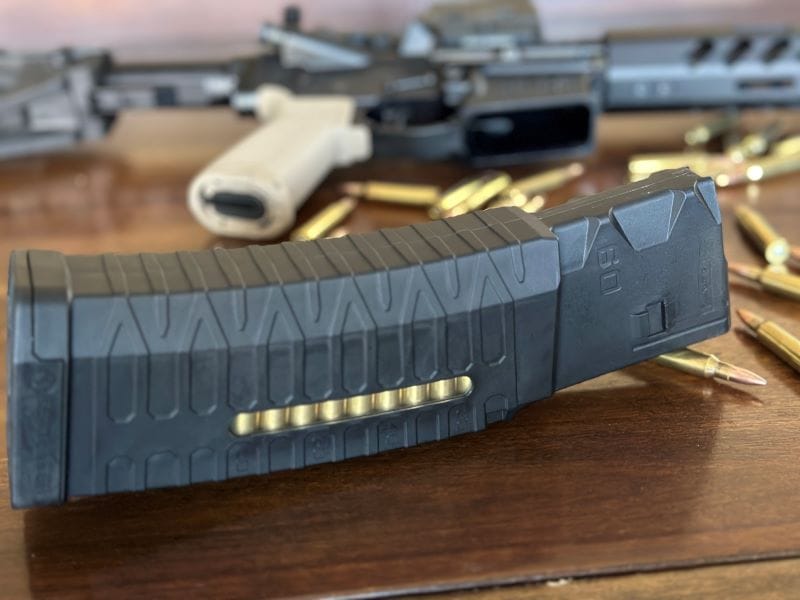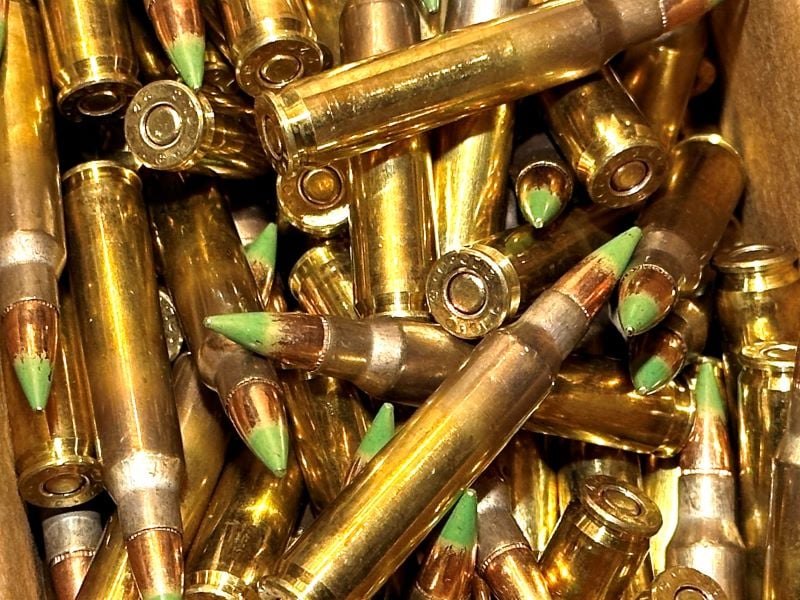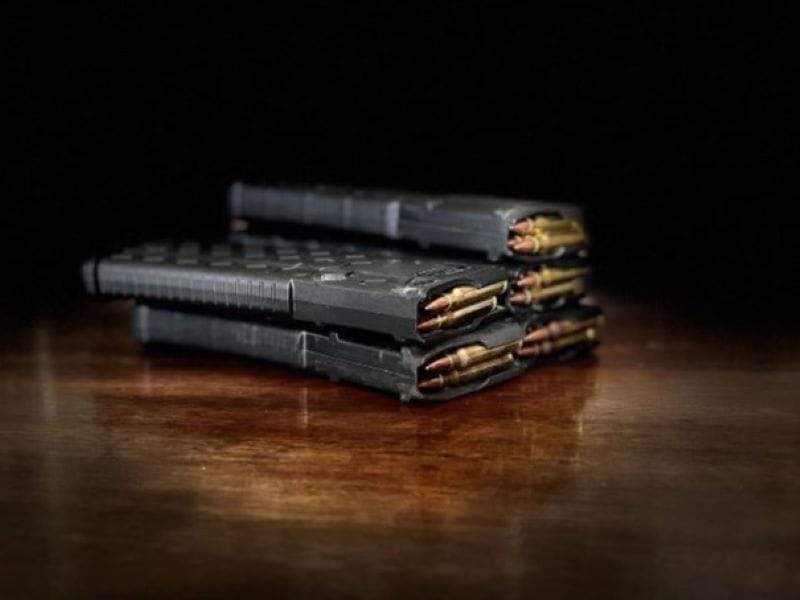A longstanding debate in the gun community is about whether it’s safe to store loaded magazines. Some believe that keeping them unloaded helps avoid damage to the springs on the magazine while others argue for leaving them loaded. There are, of course, pros and cons to either. This topic has been debated for years and ultimately, it’s up to you to decide which makes sense. I lean toward loading most of mine which we will discuss below.

Some gun owners often keep their magazines loaded so they will be ready to go. This is often recommended for people who carry semi-automatic weapons since it allows them to reload quickly in an emergency. But others worry that storing loaded magazines could harm the springs. They believe if these springs are not kept in their proper state, they will deteriorate prematurely and stop working which could cause a failure to feed.
How long will your ammo last?
Ammo is essential for any gun owner, and it must also be stored properly. The shelf life of ammunition depends largely on how it’s kept, which includes the temperature and humidity levels where it is stored. It can spoil quickly if not stored correctly, which is why most manufacturers include an expiration date on their ammunition. But with proper storage, your ammo may last several decades or longer.

Regardless of whether you store your ammo in mags or not, it is ideal to store it in military ammo cans. These airtight containers help prevent ammo from becoming contaminated or losing its potency. However, when storing ammunition long-term, there are a few things to keep in mind.
- Most importantly, don’t store your ammunition in hot temperatures for too long as this can cause it to be less effective over time.
- Before firing any ammunition, always inspect the casing to make sure it’s in optimal condition. This includes inspecting the bullet tips for signs of damage like dents or scratches as well as corrosion that could affect performance.
- Finally, the ideal place for storing your ammunition is a location that doesn’t get exposed to excessive moisture and temperatures. Some good places for this include an enclosed closet or a safe.
Why store loaded mags?
If you have an abundance of ammunition, you might be wondering how best to store it. Fortunately, there are various solutions for keeping your ammunition secure and efficient.
One common way to store ammo is in magazines. That’s where it will end up at some point anyway, right? Whether in a magazine holder or box, this method helps guarantee your ammunition stays secure and effective for an extended period. One reason to store ammo in a magazine is to free up space in your gun closet by reducing the number of ammo boxes laying around.

Another advantage of storing your ammo in magazines is that it can save valuable time during an emergency. Semi-auto firearms may be fast to shoot but they take longer to load. If someone kicks in your door in the middle of the night, loading 30 rounds into a magazine is not realistic. If there is a large-scale emergency and you must leave the house quickly, what will you take? It would be hard to grab empty mags, guns, and boxes of ammo along with everything else you need to take.
Will it damage the springs?
Contrary to what many people think, loading up a gun magazine does not weaken its springs. In fact, some experts believe that doing so may help maintain the performance and extend the lifespan of the spring. If you are worried about damaging the spring, it really depends on how often you use your magazines and how they are stored. If you keep magazines in your vehicle, they could be exposed to excessive friction, heat, and other elements. This can cause damage to their springs over time.

If you shoot them a lot, loading and unloading are what can start to weaken the spring. While storing ammo in a mag does not damage the spring, it may be good to rotate loaded and unloaded mags every so often. Some recommend rotating magazines and ammunition every six months. This gives you a chance to inspect the magazine and ammo. I like to keep half of my mags loaded and half unloaded. I don’t swap them out every six months, but I have done it a few times over the years.
What does cause damage to a magazine spring is a lot of use. But it takes a lot of use to wear the springs out. Glock and Sig, two of the world’s leading gun magazine brands, manufacture quality springs that can withstand intense compression. Most users would expect them to last several thousand rounds before needing replacement, giving you peace of mind that your magazine will not fail for a long time.
Can other magazine parts be damaged?
Some gun manufacturers recommend not storing fully loaded magazines indefinitely. Doing so can lead to the firearm malfunctioning, particularly with AR USGI magazines which are known for having detuned feed lips if left fully loaded for too long. This could cause the ammo to push out of the mag when it’s not supposed. Other magazines have hardened plastic feed lips that can crack over time when there is too much pressure on them.
Answers to this question vary depending on whom you ask but generally speaking, it’s best to rotate magazines every now and then. Doing so allows the magazine to retune and you can get rid of any old ammo that may cause issues. This is the best time to inspect the springs for proper functioning and overall condition too.
Final thoughts
Some say don’t do it and some say it’s okay. I know I have stored ammo in magazines for years and have never had any issues. Some of it will depend on the quality of the magazine you buy. Some of the finest quality magazines have been known to sit in storage for up to 10 years before being retrieved by their owner.
If you want to buy some cheap mags because they work on the range, then by all means use them. But if you want to have some ammo in magazines ready to go, get some good quality mags and place them in an ammo can. This will ensure they are there when time is not on your side, and you need them the most.


